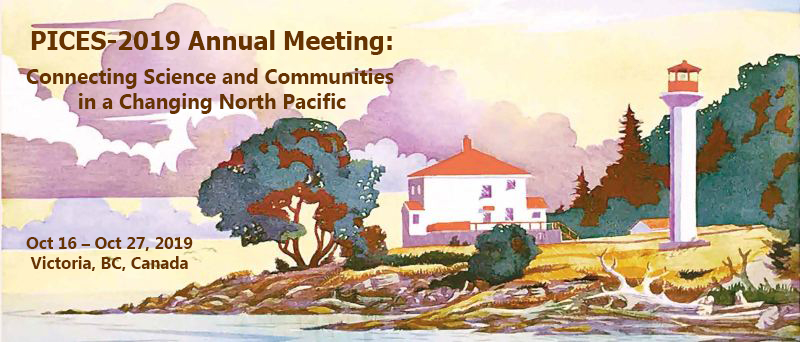
SCOPE
The North Pacific Ocean is rapidly changing due to an increasing number of stressors. This presents challenges for understanding, collaboration, and communication. More specifically: 1) What are the effects of human activities and climate change on ecosystems and the services they provide?, 2) Are there ways to improve collaboration among organizations and integrate a variety of knowledge sources to answer this question?, and 3) How can we communicate this knowledge effectively to the public? Climate change is an over-arching stressor that delivers a non-stationary background upon which other stressors act. Further, there are a wide variety of human stressors, such as fishing, aquaculture, microplastics/marine litter, invasive species, and shipping that can alter ecosystem structure, function, productivity, and biodiversity. Anticipating and detecting ecosystem responses to these stressors is a challenge, especially when responses may be non-linear and synergistic or antagonistic. Additional challenges include integrating the complexity of multiple spatial and temporal scales and incorporating climate change into sustainable ecosystem management. PICES provides a unique forum for collaboration among North Pacific member nations and other science organizations to address these challenges. There are, however, opportunities for further collaborations to better improve our understanding of the North Pacific, such as engagement with Indigenous people, citizen science programs, collaborative surveys, and coupled coastal - deep water oceanographic monitoring programs. Communicating the results of ecosystem science to the public and coastal societies is another area for advancement, as many scientists receive little or no training in communicating their results to a layperson audience or in two-way communication, where feedback can inform science.
We welcome submission of topic sessions and workshops addressing these integrative and complex issues. In particular, the PICES FUTURE (Forecasting and Understanding Trends, Uncertainty and Responses of North Pacific Marine Ecosystems) Integrative Science program would benefit from better information on: 1) the effects of human activities on coastal ecosystems, ecosystem services, and human societies; forecasting the effects of climate change on the distribution and productivity of species and communities; incorporating climate change, multiple stressors, and different temporal and spatial scales into sustainable resource and ecosystem management; tools to evaluate ecosystem response thresholds and common ecosystem reference points; and forecasting impacts of coastal stressors (e.g., microplastics, pollution, invasive species, shipping, aquaculture); 2) collaborative work with Indigenous people, with citizen science programs, with other science organizations, and across the western and eastern North Pacific; and 3) methods for more effectively communicating science to the public.
Check "Accommodation" webpage for details.